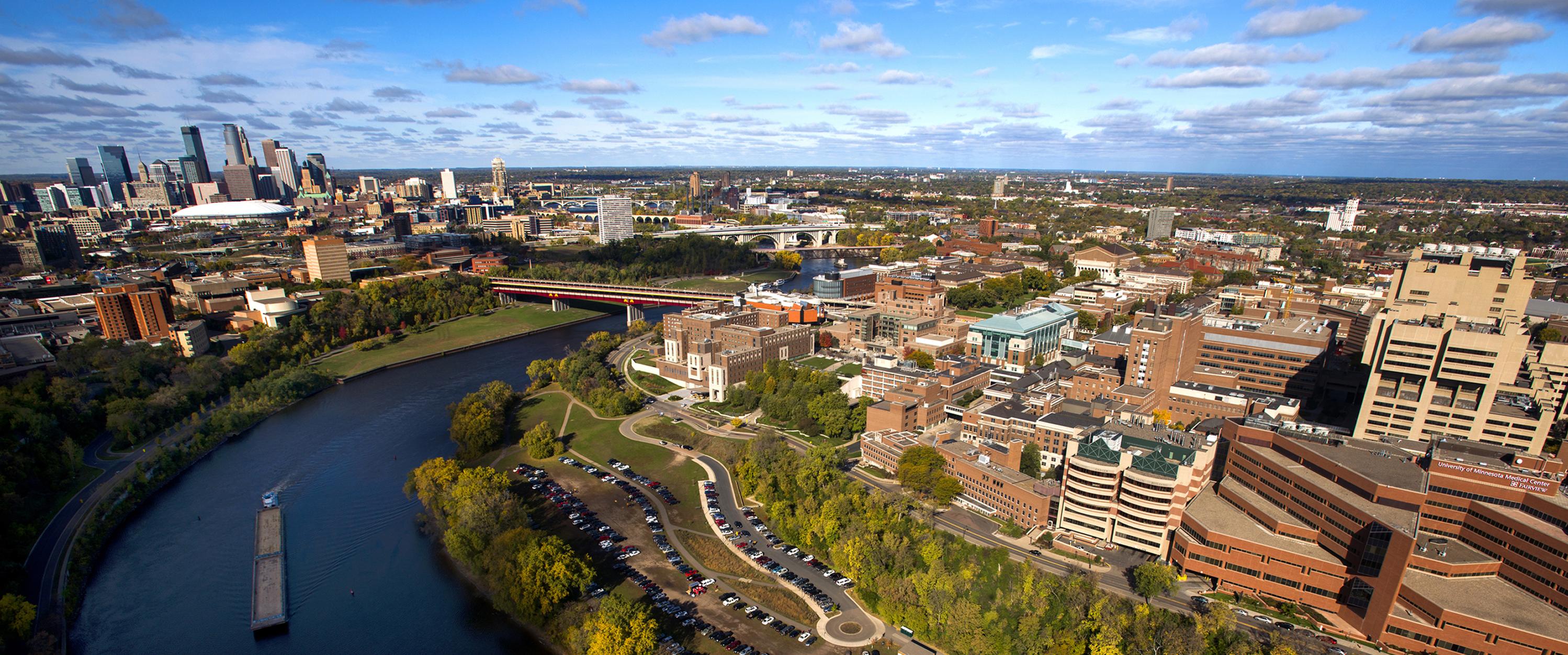Size Does Matter
Larger universities offer more diversity, more opportunities and more options than smaller colleges.
By Josephine Werni, University of Minnesota Twin Cities
Everyone who’s in college, or who will be entering it shortly, has been peppered with persuasion at one point (if not many points) to consider attending a small school rather than a large university.
Small class size, more opportunities for one-on-one dialogue between student and professor and blank are a few of the most popular arguments used to support small schools.
While those are the justifications that academics, parents and guidance counselors typically use to argue for small schools, there are several other common motivations for students to choose smaller schools that are a tad less flattering and formal, but true nonetheless.

For example, I ended up going to a small state school for my first two years because: 1. I wasn’t that great of a student in high school and public state schools, in general, have higher acceptance rates, and 2. I had not a single clue in the whole wide world what I wanted to do with my life when I was 18-years old, so I reckoned it would be wise to “discover my passions” at the lower rate of tuition that tends to go with the smaller name.
In short, I started out at a small school because I got in, and it seemed chill enough. Clearly, I was an ambitious winner.
My reasons for attending a small college, of course, only really apply to small public colleges.
Unless your heart is set on going to a certain private school because of that super special program that only they offer, or you’ve got yourself a chunky scholarship, private colleges sort of seem like a lose/lose option to me. They’re customarily tiny, but also expensive and often hard to get into. As if college didn’t cost enough already. By nature, they eliminate two of the most attractive elements (lower cost and high acceptance rate) that a lot of small state schools traditionally possess. Maybe I’m offending everyone out there who goes to a private school. Oops.
All of the above rationales for attending small schools are perfectly valid. However, as someone who made the switch from a cozy little campus to a Big 10, I don’t think that the small college experience is superior to that of one at a giant university. In fact, I’ve assembled a couple ways in which the big school (one in tens of thousands, campus-the-size-of-a-small country) experience can be hella rewarding.
One intimidating aspect of larger schools is that they are, as one might deduce, physically vast. Fresh out of the one building world of high school, many new college students worry about how they’re going to navigate hundreds of acres of academia.
Fortunately, the bigger and more urban a school is, the more public transportation there tends to be, both within and outside of the campus.
For instance, the small school that I attended didn’t have jack shit in terms of public transportation. One of the university’s most tired boasting points was the fact that they were “Only 30 minutes away from a major metropolitan city!!!!!!” Yet neither the university nor the surrounding town offered any way of getting there, or anywhere else for that matter. So, if you didn’t have a car (which is expensive no matter where you are), you were essentially stranded out in the middle of cow-scented, bumblefuck nowhere.
With its three big-ass campuses (one on the east bank of the Mississippi, another on the west, and a third that’s a 15 minute shuttle ride away in St. Paul), The University of Minnesota Twin Cities (where I go now) is freaking massive and spread out. If it weren’t for the city buses, light rail and Campus Connector shuttle, getting from one class on the West Bank to another one that’s across the river and literally in another city would be impossible to do in 30 minutes.
Living where you are required to use public transportation is also neat in that it forces you to figure that stuff out and, consequently, increases your independence. Sure, you’ll probably ride the bus the wrong way and end up in a weird part of town at least once. Just think of it as endless learning experiences at your fingertips.
In addition to the convenience of adequate public transportation, the beauty of diversity blesses big universities. Small campuses, especially when they are more removed from residential areas, have the propensity to become homogenous bubbles. At a sizable school, there are oodles of people from all different walks of life. You’ll always be able to meet new, interesting people, like the guy I see every Tuesday and Thursday morning on the bus that keeps his fare tucked into his ears.
Additionally, you should always be able to find someone who shares similar interests to you, no matter how obscure they are. If people-watching or dignified pizza crust-eating isn’t your thing, invent a club dedicated to your thing. Chances are, at least one of your tens of thousands of peers will be happy to join you.

Extensive lists of majors, loads of scholarships and a name that potential employers will recognize are just a few of many other positives to big colleges that would take too long to discuss. Sure, when I’m trudging/slipping across the Mighty Miss on a bridge that acts as an icy wind tunnel during the winter, I start to miss how I used to live 20 yards from every single one of my classes. When it comes down to it though, I’m completely satisfied with my mammoth university.
I’ve known people who transferred from a small college and/or high school to a big university and didn’t have the smoothest of transitions. From what I’ve gathered through my own experience and by observing those of others, I’ve deduced that you’ll be fine at a big school as long as you know what you are getting yourself into. Honestly, everything at a large university is bound to be ten times bigger and more complicated than what you’ve dealt with so far. As long as new students recognize and accept that, they’ll be prepared.














